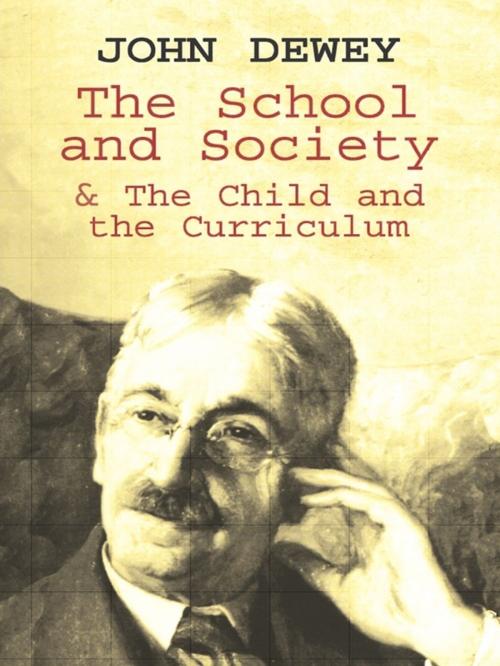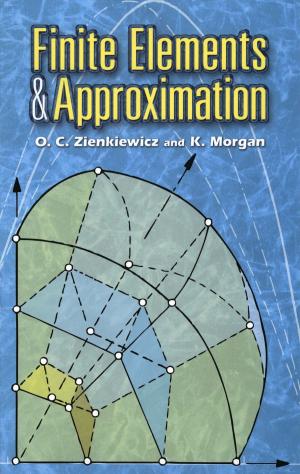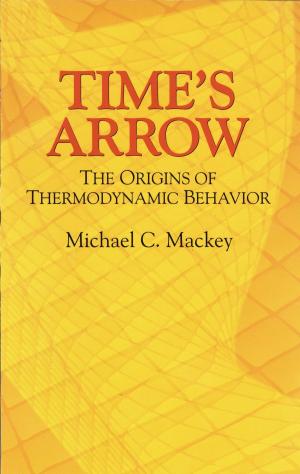The School and Society & The Child and the Curriculum
Nonfiction, Reference & Language, Education & Teaching, History, Social & Cultural Studies, Social Science| Author: | John Dewey | ISBN: | 9780486122106 |
| Publisher: | Dover Publications | Publication: | March 7, 2012 |
| Imprint: | Dover Publications | Language: | English |
| Author: | John Dewey |
| ISBN: | 9780486122106 |
| Publisher: | Dover Publications |
| Publication: | March 7, 2012 |
| Imprint: | Dover Publications |
| Language: | English |
One of the most influential forces in the shaping of American education, the famed philosopher and psychologist John Dewey (1859–1952) believed in "viewing the education of the child in the light of the principles of mental activity and processes of growth made know by modern psychology." As the administrator of the University of Chicago's laboratory school — which he established in 1896 and which was one of the first such schools in the United States — Dewey came to the realization that learning was a process starting from uncertainty and growing from the impulse which must begin with experience, and the curriculum must be made to relate to the students' interests.
The two books in this volume — both short, but extremely influential — grew out of Dewey's hands-on experience with the laboratory school and represent the earliest authoritative statement of his revolutionary emphasis on education as an experimental, child-centered process, In The School and Society, he declares that we must "make each one of our schools an embryonic community life, active with types of occupations that reflect the life of the larger society and permeated with the spirit of art, history, and science." In The Child and the Curriculum, he stresses the importance of the curriculum as a means of determining the environment of the child, and allowing the teacher to guide children in asserting themselves, exercising their capacities, and fulfilling the destinies of their own nature.
Gathered in this single convenient volume, these thought-provoking contributions by one of America's greatest thinkers in the field of pedagogy will be immense interest to educators, psychologists, parents, and anyone interested in the psychology and philosophy of childhood education.
The two books in this volume — both short, but extremely influential — grew out of Dewey's hands-on experience with the laboratory school and represent the earliest authoritative statement of his revolutionary emphasis on education as an experimental, child-centered process, In The School and Society, he declares that we must "make each one of our schools an embryonic community life, active with types of occupations that reflect the life of the larger society and permeated with the spirit of art, history, and science." In The Child and the Curriculum, he stresses the importance of the curriculum as a means of determining the environment of the child, and allowing the teacher to guide children in asserting themselves, exercising their capacities, and fulfilling the destinies of their own nature.
Gathered in this single convenient volume, these thought-provoking contributions by one of America's greatest thinkers in the field of pedagogy will be immense interest to educators, psychologists, parents, and anyone interested in the psychology and philosophy of childhood education.
One of the most influential forces in the shaping of American education, the famed philosopher and psychologist John Dewey (1859–1952) believed in "viewing the education of the child in the light of the principles of mental activity and processes of growth made know by modern psychology." As the administrator of the University of Chicago's laboratory school — which he established in 1896 and which was one of the first such schools in the United States — Dewey came to the realization that learning was a process starting from uncertainty and growing from the impulse which must begin with experience, and the curriculum must be made to relate to the students' interests.
The two books in this volume — both short, but extremely influential — grew out of Dewey's hands-on experience with the laboratory school and represent the earliest authoritative statement of his revolutionary emphasis on education as an experimental, child-centered process, In The School and Society, he declares that we must "make each one of our schools an embryonic community life, active with types of occupations that reflect the life of the larger society and permeated with the spirit of art, history, and science." In The Child and the Curriculum, he stresses the importance of the curriculum as a means of determining the environment of the child, and allowing the teacher to guide children in asserting themselves, exercising their capacities, and fulfilling the destinies of their own nature.
Gathered in this single convenient volume, these thought-provoking contributions by one of America's greatest thinkers in the field of pedagogy will be immense interest to educators, psychologists, parents, and anyone interested in the psychology and philosophy of childhood education.
The two books in this volume — both short, but extremely influential — grew out of Dewey's hands-on experience with the laboratory school and represent the earliest authoritative statement of his revolutionary emphasis on education as an experimental, child-centered process, In The School and Society, he declares that we must "make each one of our schools an embryonic community life, active with types of occupations that reflect the life of the larger society and permeated with the spirit of art, history, and science." In The Child and the Curriculum, he stresses the importance of the curriculum as a means of determining the environment of the child, and allowing the teacher to guide children in asserting themselves, exercising their capacities, and fulfilling the destinies of their own nature.
Gathered in this single convenient volume, these thought-provoking contributions by one of America's greatest thinkers in the field of pedagogy will be immense interest to educators, psychologists, parents, and anyone interested in the psychology and philosophy of childhood education.















